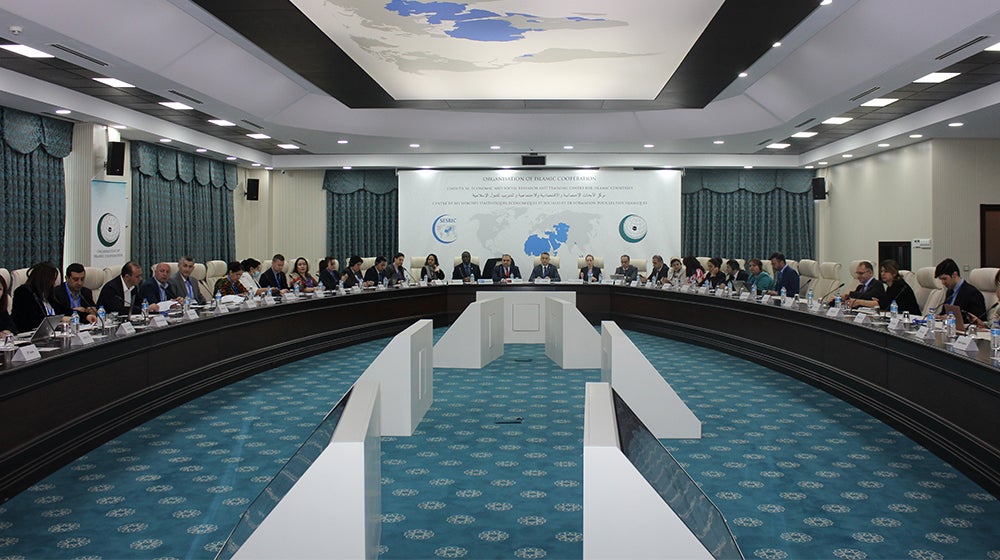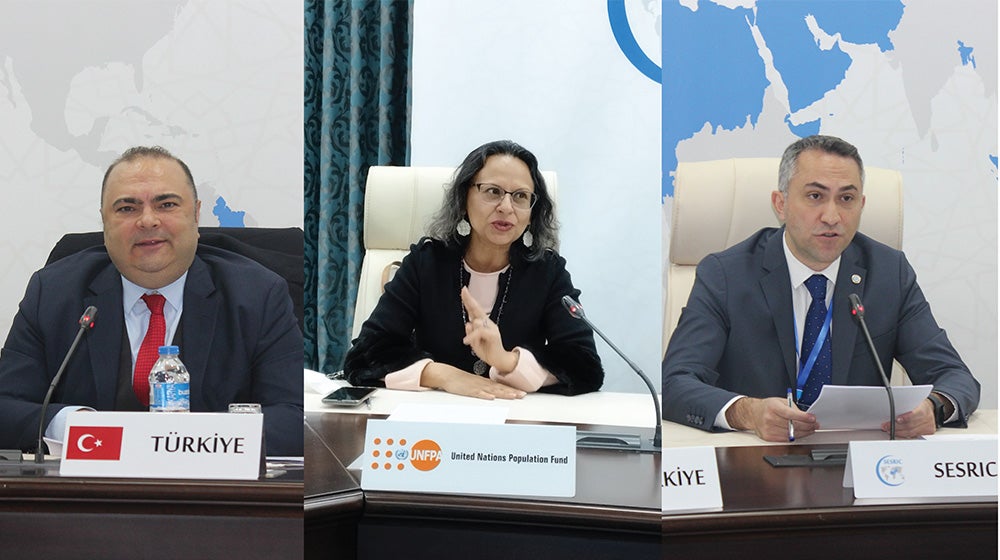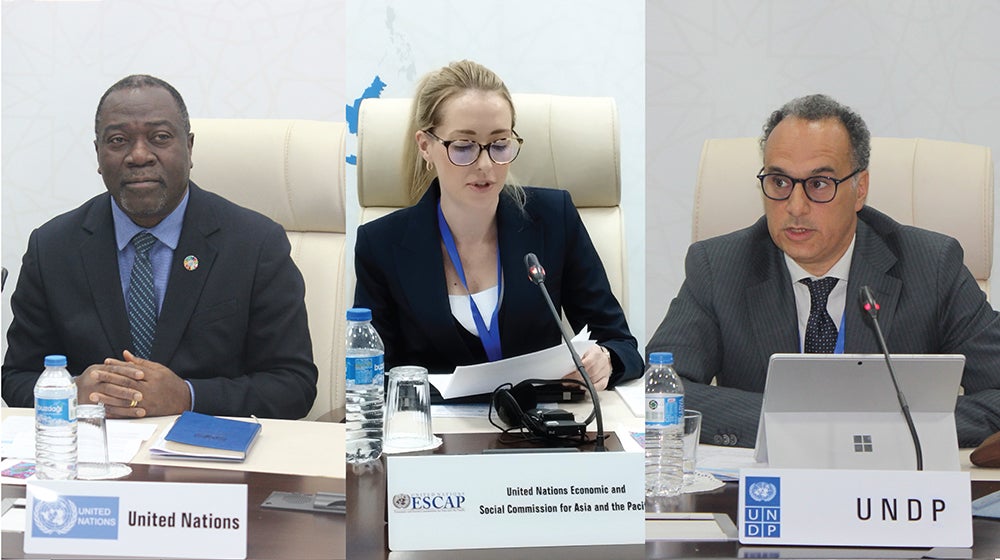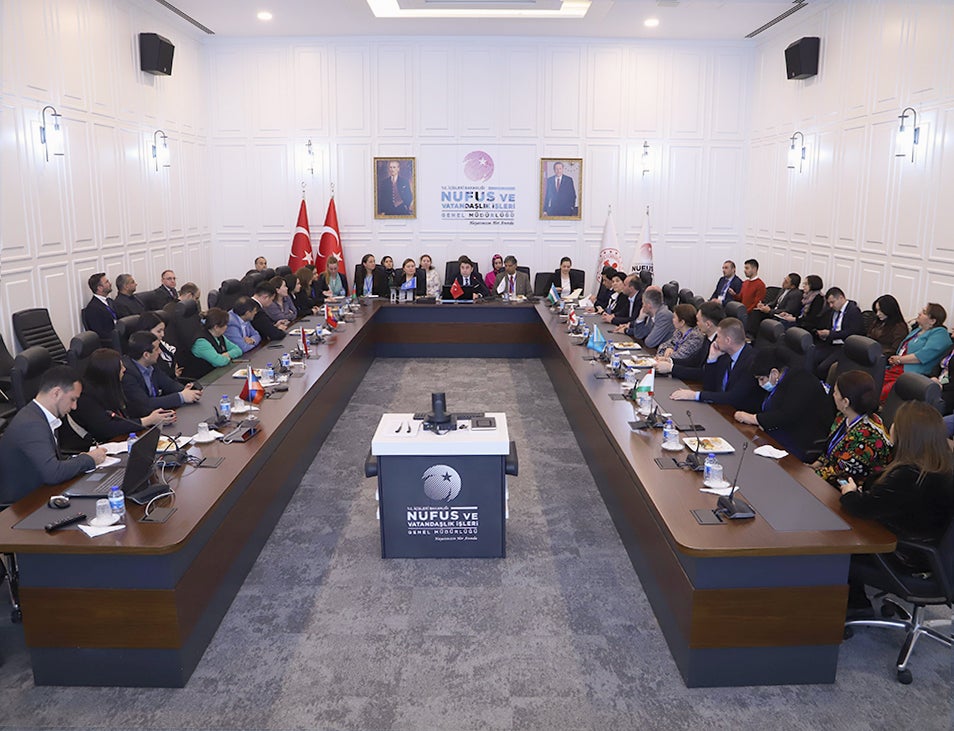In Central Asia, over 135,000 children under 5 still lack a registered birth. Without legal identity, they have difficulty in accessing education, healthcare, and protection. Co-hosted by UN ESCAP, UNFPA and SECRIC, stakeholders convened in Ankara for the “Central Asia Civil Registration Network Meeting” to discuss progress and challenges and facilitate regional knowledge exchange and cooperation for strengthening civil registration systems to address inequalities.
Ankara, Türkiye — In Central Asia, more than 135,000 children under the age of five do not have their births registered — meaning they lack legal identity and, with it, access to essential rights and services like education, healthcare and protection.
To help address this vital challenge, representatives from across the region gathered in Ankara for the Central Asia Civil Registration Network Meeting, co-hosted by United Nations Population Fund (UNFPA), the UN Economic and Social Commission for Asia and the Pacific (ESCAP), Statistical, Economic and Social Research and Training Centre for Islamic Countries (SESRIC), with the support of the Ministry of Foreign Affairs of the Republic of Türkiye, to drive progress on civil registration and legal identity across the region.

Over three days, civil registration authorities of Central Asia countries shared experiences and challenges; explored ways to collaborate on making civil registration systems more accessible, inclusive, and digital; and laid a foundation for a permanent civil registration network in Central Asia — a platform where countries can exchange knowledge, find joint solutions, and work together on cross-border challenges like migration, statelessness and digital transformation, through;
🔹 Sharing national progress and challenges on the issue
🔹 Facilitating regional knowledge exchange and cooperation
🔹 Strengthening institutional capacity for inclusive and sustainable systems
🔹 Establising the groundwork for a Central Asian Civil Registrars Network
🔹 Promoting digital transformation and assessing inequalities in registration process

“As we have been lately witnessing unprecedented and multi-dimensional global challenges, the importance of UNFPA’s work increases," said Yekta Noyan, the Head of the Department, the Directorate of International Economic Policies and Institutions in the Ministry of Foreign Affairs. “This is a burden that no country can shoulder on its own. With that understanding, as Türkiye, we are working hard to contribute to the global development cooperation efforts.”
“UNFPA hosts the Civil Registration and Vital Statistics (CRVS) Center of Excellence at its headquarters, with support from the Government of Canada. We make knowledge products on CRVS available as a public good to help countries strengthen their systems,” stated Mariam A. Khan, UNFPA Representative in Türkiye. “As UNFPA, we pay particular attention to the registration of vital events—especially marriage and divorce—for women, girls, and populations most at risk of being left uncounted.”
“Within the Asia-Pacific region alone, around 51 million children remain without birth registration, with an estimated 135,000 of these children in Central Asia” emphasized Onur Çağlar, Director of Statistics and Information Department in SESRIC. “I am confident that our collective deliberations will yield meaningful outcomes and tangible progress towards strengthening the CRVS systems within our Central Asian member countries.”

“Legal identity is the gateway to rights and dignity,” said Babatunde Ahonsi, UN Resident Coordinator to Türkiye. “When a child’s birth is registered, it opens the door to health, education, protection and employment, so demographic resilience. Through this network, countries in Central Asia are coming together to ensure that no one is left behind.”
“A legal identity is a human right, which is why CRVS is fundamental in rights-based inclusive development,” stated Chloe Harvey from ESCAP, and added; “This meeting marks a pivotal moment—both to reflect on progress and to chart a shared path forward as we work toward inclusive, resilient, and people-centered CRVS systems in the Central Asia.”
“Civil registration systems form the foundation of good governance and inclusive societies,” stated Filippo Caruso, Chief Technical Advisor of UNDP Tajikistan. “They are not merely administrative processes but fundamental human rights enablers that provide legal identity and ensure every person counts.”

On the 2nd day of the meeting, a technical visit was held to the Directorate General of Civil Registration and Citizenship Affairs. Country representatives came together with İbrahim Taşyapan,“Directorate General of Civil Registration and Citizenship Affairs, and were informed on the Spatial Address Registration System, Central Civil Registration Administration System and TR Identity Number, Civil Registry Services in Türkiye.
Recognizing the importance of marriage and divorce data in CRVS systems for reducing financial, cultural, and legal barriers that limit women’s rights on several issues such as inheritance; the final day of the meeting was dedicated to a technical workshop led by UNFPA on "Marriage and Divorce Registration and Vital Statistics in Central Asian Countries." During the workshop, representatives from Central Asian countries shared detailed information about their system structures, the challenges they face, lessons learned, and solutions implemented. Multiple recommendations were made to strengthen the collection of marriage and divorce statistics within civil registration systems, in alignment with UNFPA's ongoing work in this field.
The outcomes of the meeting will contribute to the wider regional review of the Asia-Pacific CRVS Decade (2015–2024) and preparations for the Third Ministerial Conference on CRVS, scheduled for June 2025.


